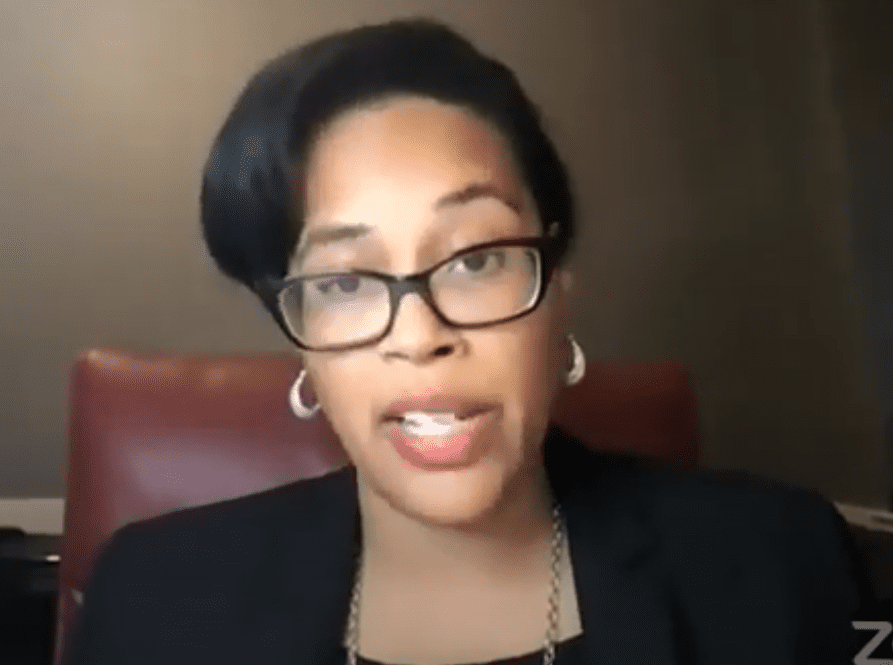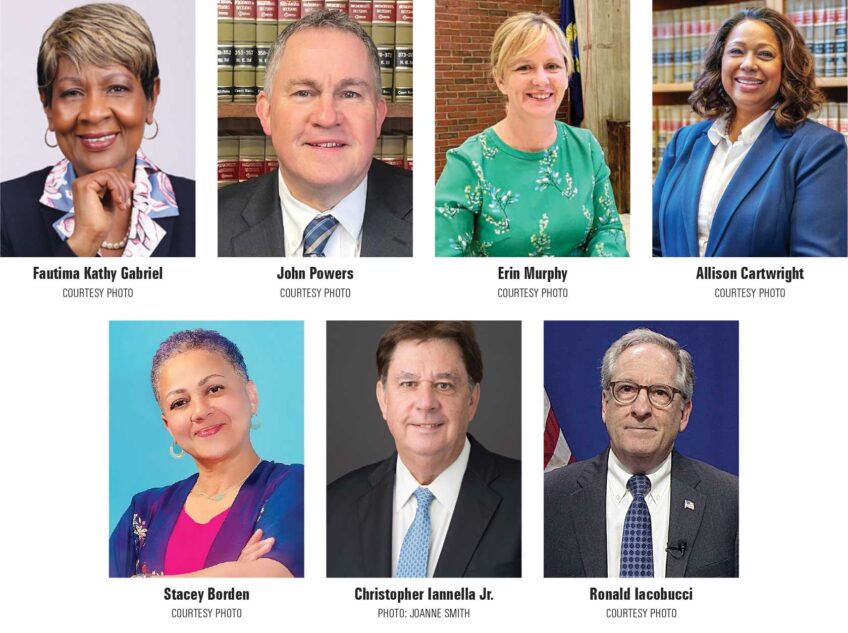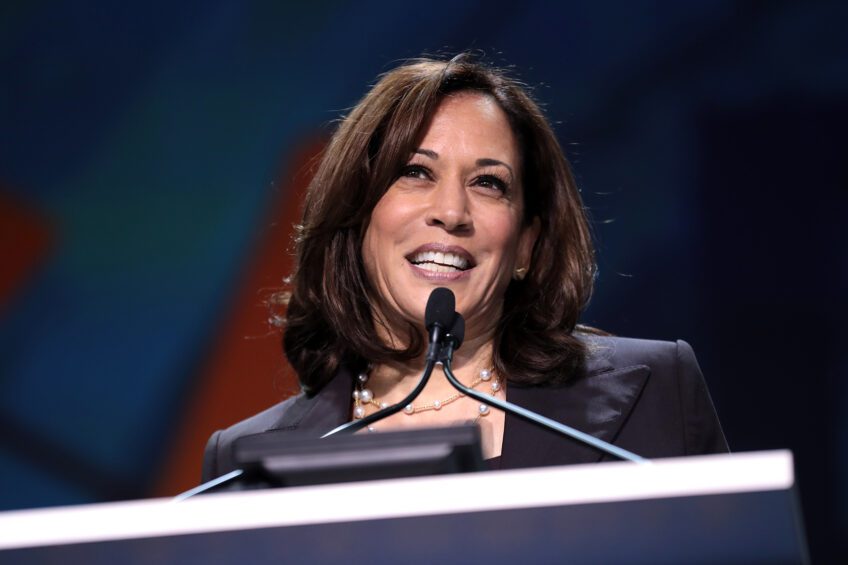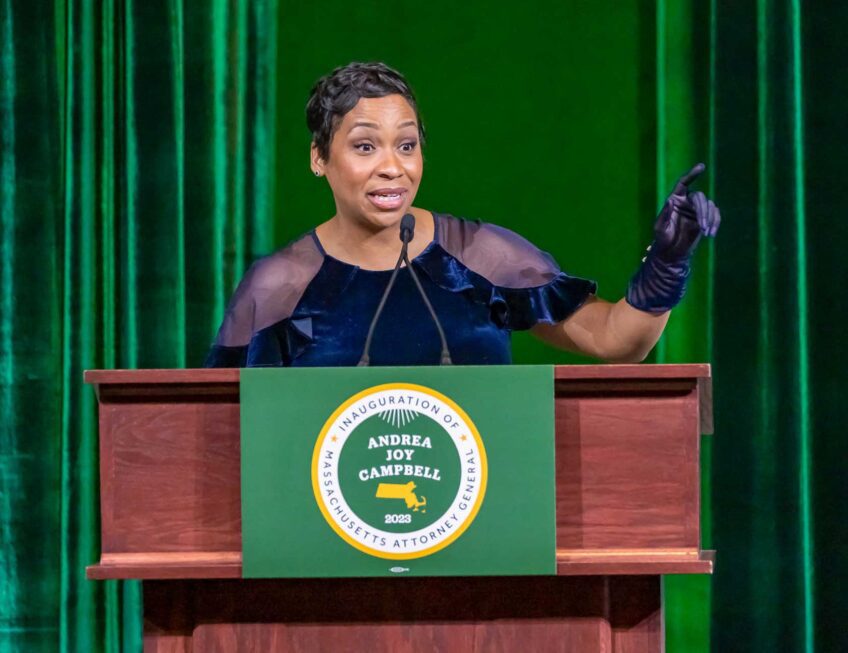
Dozens of individuals and representatives of civil rights, voter rights and other advocacy groups testified on Jan. 26 in support of a home rule petition to skip a special election to fill the mayor’s seat soon to be vacated by Martin Walsh.
Citing the difficulty of collecting signatures and campaigning during a pandemic and the possible disruption of a process that could lead to as many as four people serving as mayor in a one-year period, activists and elected officials spoke in support of the petition, filed Jan. 8 by City Councilor Ricardo Arroyo.
The most heated moment in the council hearing came, however, when NAACP Boston Branch President Tanisha Sullivan called into question a legal opinion, which Councilor Lydia Edwards obtained from the council’s in-house attorney, that cited a conflict of interest in declared candidates and an acting mayor voting on the matter.
That memo, if accepted by the council, would have precluded councilors Andrea Campbell, Michelle Wu, Annissa Essaibi George and Kim Janey from voting on the home rule petition while requiring seven “yes” votes for the measure to pass.
In her testimony, Sullivan called the legal memo an attempt to “chill progress on the matter.”
“What I’ve seen is not legal analysis,” she said. “It a complete misread of the law on its face. And you don’t need a law degree to understand that. And because it’s such a blatant act, we have to call it out for what it is: It’s an attempt to oppress and subjugate.”
The home rule petition Arroyo is seeking would have to pass with a majority of votes on the council, obtain Mayor Martin Walsh’s signature, pass in the Legislature and be signed by the governor. The move is not unprecedented. The City of Lawrence earlier this year passed a home rule petition to cancel a special election to replace former Mayor Dan Rivera, who now heads the quasi-governmental agency MassDevelopment.
Boston city councilors in 2007 passed a home rule petition cancelling a regularly scheduled preliminary election in which the four at-large members would have been among the nine candidates on the ballot.
Sullivan noted that councilors often vote on matters in which they have financial and political interests.
“We see as residents week-by-week the city council voting on issues that have a personal impact on you, not the least of which, your salary,” she said. “Maybe that should be on the ballot.”
While the legal memo took the city’s attorney, Christine O’Donnell, a week to produce, Arroyo and Janey both obtained contradictory rulings from the State Ethics Commission within hours of requesting them last week. In its ruling, the ethics commission cited the same law referenced by O’Donnell, but noted the law explicitly exempts home rule petitions.
Sullivan characterized the memo as an attempt to prevent Campbell, Janey and Wu from voting.
“My heart is breaking having to acknowledge this overt attempt to misuse the law to silence the voices and neutralize the power of the women of color who have declared their candidacy for mayor and the Black woman who will become acting mayor,” she said. “It does make me scratch my head and wonder why it is that we would use this opportunity to call into question the integrity of these women.”
Edwards came to the defense of O’Donnell, whose memo came under fire during the hearing, referring to her as competent and kind.
“I don’t want you to ever think I question what you did or why you did it,” she said, addressing O’Donnell. “You answered a question. We are all lawyers. We can disagree and not be disagreeable. At the end of the day, my colleagues went to the highest source on this. They have spoken. The process is continuing.”
The Government Operations Committee, which Edwards heads, will hold a working session on the home rule petition Friday. A vote on the matter was scheduled for Wednesday, Feb. 3.








